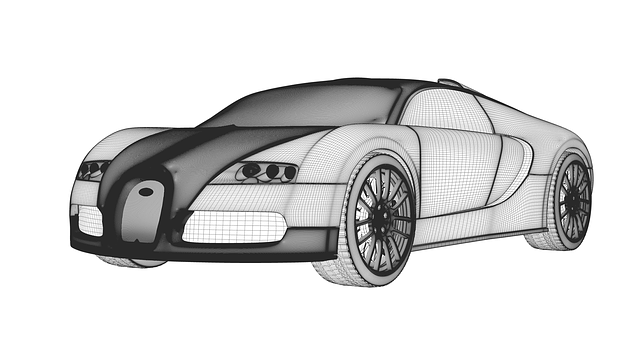Karachi’s Electric Revolution: Emerging Tech Shaping Sustainable Mobility
Karachi, Pakistan's vibrant metropolis, is experiencing a quiet revolution in its transport sec…….

Karachi, Pakistan's vibrant metropolis, is experiencing a quiet revolution in its transport sector with the growing popularity of electric vehicles (EVs). Driven by sustainability and environmental concerns, advanced battery technology, improved charging infrastructure, and innovative ride-hailing services are transforming urban commuting. Karachi is poised for further transformation with smart connectivity and autonomous driving technologies aimed at enhancing traffic flow and safety. However, challenges such as insufficient charging infrastructure and power instability require coordinated efforts from stakeholders to accelerate EV adoption rates and realize a greener future for the city.
Karachi, Pakistan’s bustling metropolis, is on the cusp of a sustainable transportation revolution with the emerging electric mobility technologies. This article explores how the city embraces electric vehicles (EVs), delves into advanced battery innovations, and uncovers the potential of smart connectivity and autonomous driving. Additionally, it highlights the critical development of charging infrastructure to overcome barriers and accelerate the widespread adoption of EVs in Karachi. Prepare to navigate Karachi’s roads in a new era of eco-friendly mobility.
- The Rise of Electric Vehicles in Karachi: A New Era of Sustainable Transport
- Advanced Battery Technologies: Powering the Future of Electric Mobility
- Smart Connectivity and Autonomous Driving: Revolutionizing Karachi's Roads
- Charging Infrastructure Development: Overcoming Barriers for Widespread Adoption in Karachi
The Rise of Electric Vehicles in Karachi: A New Era of Sustainable Transport

Karachi, Pakistan’s bustling metropolis, is witnessing a quiet revolution in its transport landscape with the rising popularity of electric vehicles (EVs). This shift towards electrification is not just a trend but a necessary step towards sustainability and a cleaner environment for one of the world’s most populated cities. With concerns over air pollution and noise levels on the rise, EV adoption offers a promising solution to navigate Karachi’s labyrinthine streets.
The introduction of electric mobility options has sparked interest among residents and businesses alike. This new era of sustainable transport is characterized by advanced battery technology, improved charging infrastructure, and a growing network of EV service centers across the city. As a result, Karachi is becoming a hub for innovative start-ups offering ride-hailing services using all-electric vehicles, making commuting more eco-friendly and cost-effective.
Advanced Battery Technologies: Powering the Future of Electric Mobility

In the bustling metropolis of Karachi, the future of transportation is taking shape through advanced battery technologies. Electric mobility is no longer a niche concept but an emerging reality, and the heart of this transformation lies in innovative batteries that offer higher energy density, faster charging times, and extended vehicle range. These breakthroughs are pivotal for the widespread adoption of electric vehicles (EVs), addressing key concerns about performance and convenience that have historically hindered their growth.
The development of next-generation batteries is a game-changer, promising to revolutionize not just Karachi’s urban landscape but also global mobility patterns. Researchers and manufacturers are leveraging advancements in materials science to create lithium-ion batteries with improved safety features, longer lifespans, and superior thermal stability. As these technologies mature, they will play a crucial role in enhancing the sustainability and efficiency of electric vehicles, making them more appealing to consumers and contributing to the city’s overall environmental goals.
Smart Connectivity and Autonomous Driving: Revolutionizing Karachi's Roads

Karachi, as Pakistan’s bustling metropolis, is on the cusp of a transformative journey with the advent of smart connectivity and autonomous driving technologies. These emerging innovations promise to revolutionize road transportation, making daily commutes safer, more efficient, and environmentally friendly. By integrating advanced communication networks and artificial intelligence, vehicles in Karachi can seamlessly connect with each other and their surrounding infrastructure. This creates a network-driven ecosystem where real-time data sharing enhances traffic flow management, reduces congestion, and optimizes route planning.
Autonomous driving systems, powered by sophisticated sensors and machine learning algorithms, have the potential to eliminate human errors, leading to fewer accidents and improved road safety. In Karachi’s dense urban landscape, these technologies can navigate through challenging traffic conditions, ensuring smoother and more predictable journeys. With smart connectivity, vehicles can receive instant updates on road conditions, construction zones, and parking availability, allowing for efficient trip planning and reduced time spent idling in traffic, ultimately contributing to a greener and more livable Karachi.
Charging Infrastructure Development: Overcoming Barriers for Widespread Adoption in Karachi

In Karachi, the development of charging infrastructure is a key enabler for the widespread adoption of electric mobility. However, several barriers hinder progress. One significant challenge is the lack of consistent and accessible charging stations across the city, which causes range anxiety among potential EV (Electric Vehicle) owners. The urban landscape of Karachi presents unique logistical difficulties in deploying charging stations, especially in densely populated areas where space is limited. Moreover, the current electrical grid capacity in the city struggles to meet the demands of a rapid increase in EV adoption, leading to power outages and instability.
To overcome these barriers, coordinated efforts from local authorities, private sector players, and the community are required. Smart grid technologies and microgrids can help alleviate grid strain by efficiently managing energy distribution. Public-private partnerships for infrastructure development can accelerate the installation of charging stations in strategic locations like residential complexes, commercial hubs, and public transportation nodes. Encouraging home charging solutions through incentives and subsidies can further boost EV adoption rates in Karachi.
Karachi is on the cusp of a sustainable transport revolution, with electric mobility emerging as a game-changer. From advanced battery technologies powering faster and longer-lasting vehicles, to smart connectivity and autonomous driving features, the city is poised for a future where efficient and eco-friendly travel is the norm. Overcoming challenges in charging infrastructure development will be key to realizing this vision, ensuring Karachi stays at the forefront of emerging electric mobility technologies.







